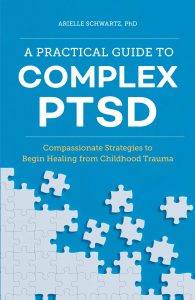Complex relational trauma is the cause of complex post-traumatic stress disorder, a mental health issue that alters lives. Many people have experienced complex relational trauma but have no idea how to manage or treat it.
This article shall focus on this type of trauma and a specialist in treating it, Anne Wright.
What is Complex Relational Trauma?

To treat complex trauma, you must first know what it is. Complex relational trauma, although not found in the current Diagnostic Statistical Manual of Mental Disorders (DMS), forms when a person experiences neglect, abuse, and severe maltreatment as a child.
Complex relational trauma is abuse carried out by primary relationships with parents, caregivers, guardians, or anyone who has power over the child. Complex trauma happens when the abuse is repeated and for an extended time. Sometimes complex relational trauma continues into adulthood through other relationships with abusers, such as the person’s intimate partner.
An unconscious need to repeat the unhealed trauma is at the center of unhealthy relationships in adulthood because they are conditioned to form them from childhood.
Signs and Symptoms of Complex Trauma
The wounds from childhood carry into adult relationships and function in the background of conditions such as major depression, anxiety, and personality disorders like borderline personality disorder.
The physical effects of complex trauma often manifest as migraines, hypervigilance, and stomach issues. Complex relational trauma has many symptoms associated with post-traumatic stress disorder (PTSD).
The other symptoms include:
- A sense of worthlessness
- Neediness
- Attention-seeking behavior
- A deep mistrust of others
- Social anxiety
- Social avoidance
- Anger
- Rage
- Deep sadness
- Flashbacks
Unfortunately, if a child is taught neglect, abandonment, and maltreatment are normal behaviors, they are more likely to have these patterns repeat in their lives.
The Ways Complex Relational Trauma Effects Adult Survivors
As you can imagine, complex trauma leaves deep marks on those who experience it. In adulthood, complex relational trauma manifests with some of the following signs and impacts.
- Difficulty forming and maintaining healthy relationships
- Avoiding intimacy
- Avoiding close relationships
- Feeling strongly that one should be completely self-sufficient
- Needing a relationship but also have an intense fear of abandonment
- Needing to be perfect
- Putting others first and neglecting one’s own needs
- Use dissociation as a go-to defense mechanism
- Lack of self-regulation and impulse control
Left untreated, complex relational trauma can lead to a substance abuse disorder, physical illness, the formation of mental illness, self-harm, and even suicide.
Treating Relational Trauma

Coping with relational trauma’s effects is difficult but can be done. First, you must recognize that what you have been experiencing all your life is the effects of relational trauma.
Three types of treatment go together that you can get for treating complex relational trauma, including talk therapy, medication, and adding things you can do for yourself to your life.
Psychotherapy. Various types of psychotherapy can help mend a person who has suffered relational trauma.
- Talk therapy. Talk therapy, also known as psychotherapy, helps address trauma of all types and the mental health conditions it causes. Talking to a therapist can help you understand relational trauma’s symptoms and how it has affected your life. A therapist can also help you understand yourself better and bring to light your behaviors, including your thought patterns, and increase your sense of self.
- Cognitive behavioral therapy (CBT). CBT is a form of psychotherapy treatment that is effective for many problems. CBT, according to research, helps improve functioning and improves the person’s quality of life. Some studies suggest it is as effective or more than other forms of treatment.
- Dialectical behavioral therapy (DBT). DBT is an evidence-based psychotherapy that research suggests can be useful in treating mood disorders and suicidal ideation. Dialectical means combining opposite ideas to change thought patterns.
- Eye movement desensitization and reprocessing (EMDR). This therapy is a technique that involves moving one’s eyes a specific way while processing traumatic memories. EMDR helps to heal you from trauma or other distressing life experiences. It is vital that EMDR be used only in the presence of a therapist who is qualified to perform it, as it can bring to the surface strong emotions.
The CPTSD Foundation is pleased to promote an outstanding EMDR practitioner, Annie Wright, whom we will introduce in this piece and highlight in later posts.
Medication
Although there is no medication for treating complex relational trauma directly, meds can help with the mental health conditions that often form because of it. While medications aren’t always necessary, they can be beneficial.
Adding things to your treatment, you can do for yourself. Various self-care strategies can help you cope with complex relational trauma. The self-care strategies aren’t the same for everyone.
Self-care strategies might include:
- Eating regularly and getting enough good sleep to enhance your mood
- Finding healthy ways to unwind, such as exercise or meditation
- Identifying the triggers of your anxiety, trauma responses, and depression and finding ways to cope that work for you
- Use journaling or a creative hobby as emotional outlets
- Stay in contact with your loved ones, including intimate partners
- Attend a trauma-informed support group
Your therapist will most likely have items to add to this list.
An Introduction to Annie Wright

Annie Wright is a licensed psychotherapist who works with her clients to overcome relational trauma. Annie works differently than ordinary trauma workers as she helps those who have experienced isolation and single-incident trauma.
Coming from a relational trauma background, Annie Wright learned what she was experiencing had a name, and, in her thirties, finally understood how to overcome it. Nearing the age of forty, Annie is a trauma recovery specialist and a licensed psychotherapist helping adult children of abusive and neglectful parents overcome their pasts and create future lives for themselves.
Annie Wright is known for her signature relational trauma recovery trauma work. She also offers attachment-focused EMDR therapy as an added supplemental or stand-alone treatment.
Ms. Wright states on her website that EMDR is widely researched and based on neuroscience-informed integrative therapy discovered to treat distressing emotional symptoms. Using bilateral stimulation such as eye movements, alternating auditory sounds, or bilateral physical sensations, EMDR aids your brain’s natural impulse to metabolize negative memories and behavior patterns.
Ending Our Time Together
Complex relational trauma changes lives by creating an environment that mimics the maltreatment they suffered in childhood. Those who live with the effects of complex trauma often find themselves in destructive relationships or in none at all.
There are adequate treatments available that can alleviate the tragic symptoms of complex trauma. Eye movement desensitization and reprocessing (EMDR) can significantly aid in overcoming the side effects of complex trauma by aiding your brain in utilizing its natural propensity to choose better-thought patterns.
Annie Wright is a therapist who employs EMDR to treat her clients to change their lives. Our next post will discuss Annie Wright’s practice and add more information about EMDR.
“Trauma fractures comprehension as a pebble shatters a windshield. The wound at the site of impact spreads across the field of vision, obscuring reality, and challenging belief.” – Jane Leavy
“Trauma is a fact of life. It does not, however, have to be a life sentence.”
– Peter A. Levine

Are you a therapist who treats CPTSD? Please consider dropping us a line to add you to our growing list of providers. You would get aid in finding clients and helping someone find the peace they deserve. Go to the contact us page and send a note; our staff will respond quickly.
Shortly, CPTSD Foundation will have compiled a list of providers treating complex post-traumatic stress disorder. When it becomes available, we will put it on our website www.CPTSDFoundation.org.
Visit us and sign up for our weekly newsletter to help inform you about treatment options and much more for complex post-traumatic stress disorder.
The Healing Book Club

As of May 7th, 2022, the current book will be – “A Practical Guide to Complex PTSD: Compassionate Strategies to Begin Healing from Childhood Trauma.”
by Dr. Arielle Schwartz.
Here is an Excerpt –
Repetitive trauma during childhood can impact your emotional development, creating a ripple effect that carries into adulthood. Complex post-traumatic stress disorder (C-PTSD) is a physical and psychological response to these repeated traumatic events. A Practical Guide to Complex PTSD contains research-based strategies, tools, and support for individuals working to heal from their childhood trauma. You don’t have to be a prisoner of your past.
Learn the skills necessary to improve your physical and mental health with practical strategies taken from the most effective therapeutic methods, including cognitive-behavioral therapy (CBT), dialectical behavioral therapy (DBT), eye movement desensitization, and reprocessing (EMDR), and somatic psychology. When appropriately addressed, the wounds of your past no longer need to interfere with your ability to live a meaningful and satisfying life.
This book includes the following:
- Understand C-PTSD—Get an in-depth explanation of complex PTSD, including its symptoms, its treatment through various therapies, and more.
- Address the symptoms—Discover evidence-based strategies for healing the symptoms of complex PTSD, like avoidance, depression, emotional dysregulation, and hopelessness.
- Real stories—Relate to others’ experiences with complex PTSD with multiple real-life examples in each chapter.
Start letting go of the pain from your past—A Practical Guide to Complex PTSD can help show you how.
If you or a loved one live in the despair and isolation of complex post-traumatic stress disorder, please come to us for help. CPTSD Foundation offers a wide range of services, including:
- Daily Calls
- The Healing Book Club
- Support Groups
- Our Blog
- The Trauma-Informed Newsletter
- Daily Encouragement Texts
All our services are reasonably priced, and some are even free. So, sign-up to gain more insight into how complex post-traumatic stress disorder is altering your life and how you can overcome it; we will be glad to help you. If you cannot afford to pay, go to www.cptsdfoundation.org/scholarship to apply for aid. We only wish to serve you.
Mindfulness, Prayer, and Meditation Circle

Meditation can be an integral part of healing from trauma. Our 9-week self-study video course helps you integrate this fantastic grounding, centering, and focus method. Join the Mindfulness, Prayer, and Meditation Circle today!

A new Trauma-Informed Yoga program is now available! Check out our information page about this highly requested new program! #yoga #traumainformed #cptsd #mentalhealth #recovery #wellness https://cptsdfoundation.org/traumainformedyoga/
Do you have goals you need help reaching, or help define what goals suit you? Have you considered working with a #traumainformed coach? Learn about a new opportunity and a Free Discovery Call!
UK Support


My name is Shirley Davis and I am a freelance writer with over 40-years- experience writing short stories and poetry. Living as I do among the corn and bean fields of Illinois (USA), working from home using the Internet has become the best way to communicate with the world. My interests are wide and varied. I love any kind of science and read several research papers per week to satisfy my curiosity. I have earned an Associate Degree in Psychology and enjoy writing books on the subjects that most interest me.




The emotional and psychological reaction to a highly stressful life event is deemed as trauma. Examples can include war zones, natural disasters, the death of a loved one, and much more. Trauma can cause different mental and physical symptoms. To learn more about Trauma and How does it affects, visit https://yourmentalhealthpal.com/what-is-trauma-and-how-it-affects-people/
Greetings, this article explains relational trauma with great compassion, though I wish there was more focus on physiological repair alongside therapy. Trauma absolutely lives in the nervous system and body chemistry. When I dealt with long term stress in Dubai, I discovered through testing on this website that chronic inflammation and gut imbalance were amplifying emotional triggers. Have you ever considered how microbiome health affects trauma recovery? After following a personalised protocol, my anxiety episodes reduced from daily to once weekly. It was surprising and encouraging. Emotional healing became much easier when the biological side was addressed properly too.